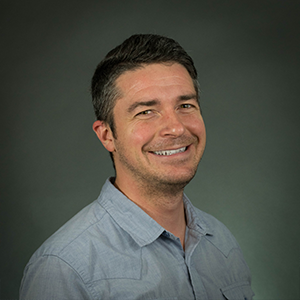Adam Terando

Bio
Adam is a Research Ecologist with the US Geological Survey at the Department of Interior and NCSU Southeast Climate Science Center, an Adjunct Professor with the Applied Ecology Department, and a Faculty Fellow with the Center for Geospatial Analytics. His current research focuses on the impacts of climate and land use change on ecosystems and the complex human-environment relationships that drive these processes. This includes developing methods to quantify the information value of climate models for use in adaptive management problems; understanding and predicting climatically-induced changes to extreme wildfires in the Southeast US; simulating urban growth and land use pattern changes in the Southeast; exploring the feedbacks between climate, land use change, and coastal development; and developing ultra high-resolution climate projections for the U.S. Caribbean to support the creation of robust conservation reserves for at-risk species.
Grants
This project will create species distribution maps for bird and anuran species that are critically endangered, vulnerable or data deficient and will use future climate scenarios to determine how their distribution may change in the future. The information generated for this project will useful for creating an unprecedented baseline of present day species distributions of 26 species of greatest conservation need. Furthermore, the study will combine the current distributions and bioclimatic niche information with future climate change scenarios to predict how species distributions are expected to change over the next ~80 years. Lastly, this project will the aforementioned products to develop a sampling framework to improve spatial and temporal inferences about species distribution.
The US Fish and Wildlife Service (USFWS) has approximately 2.4-2.5 million acres of private lands enrolled in the Safe Harbor Program for Red-cockaded Woodpeckers (RCW) across the Southeast. The RCW could be viewed as a ����������������surrogate��������������� species, and the interest of the USFWS is in quantifying and evaluating the conservation benefits of RCW practices on non-surrogate species. The objective of this work is to develop a sampling scheme that will help USFWS quantify the benefits of Safe Harbor Management Agreements (SHMA) on non-surrogate species across southeastern United States. Because SHMAs influence present and future habitat conditions, the sampling scheme will be geared towards estimating parameters that quantify species richness and the dynamics of single species or avian communities over time (e.g., occupancy, extinction and colonization rates, inference about interactions). This work will tap existing occupancy-based models, develop extensions if needed, but center their application around a sound and flexible sampling design for implementation across the southeast.